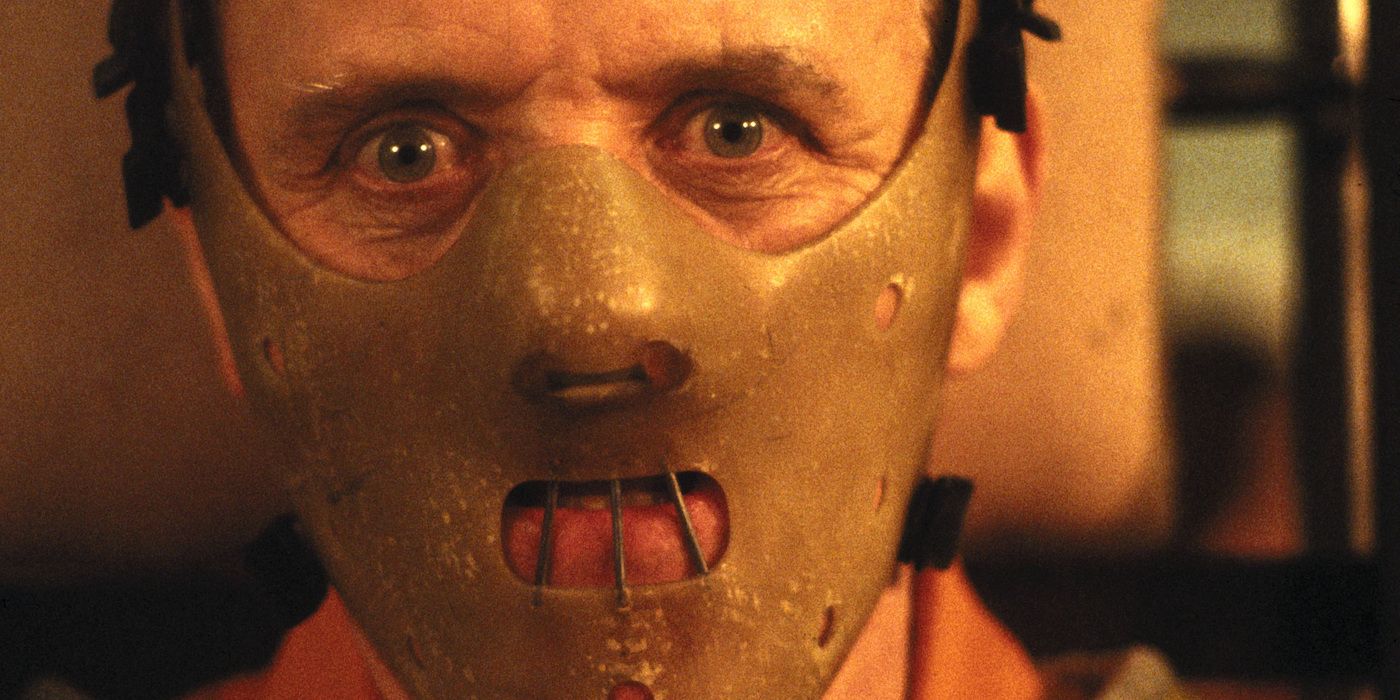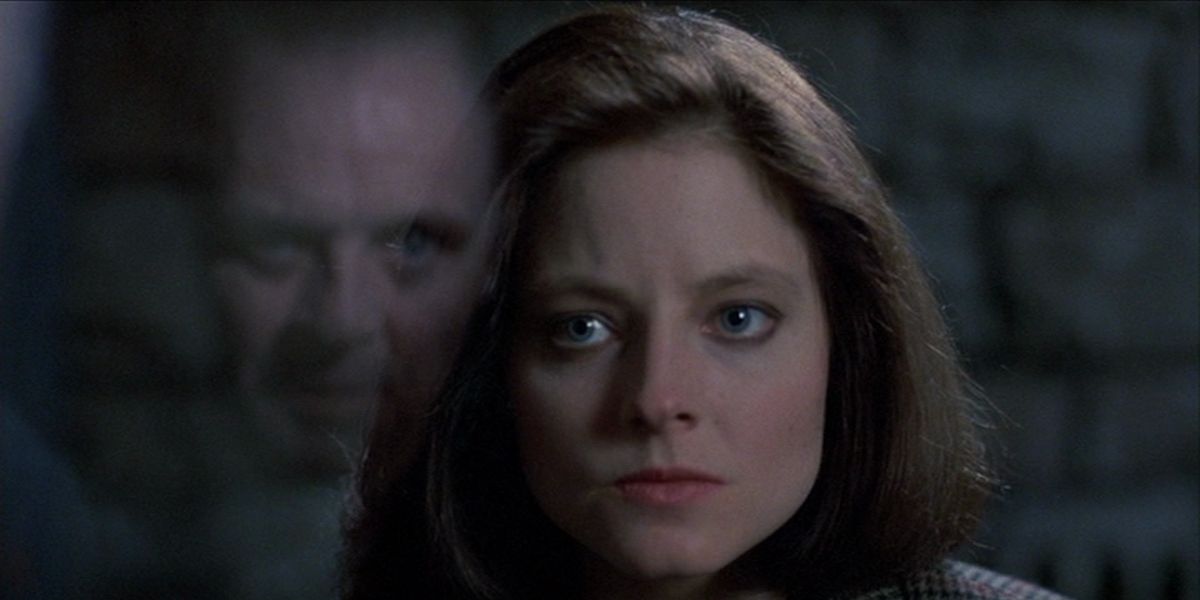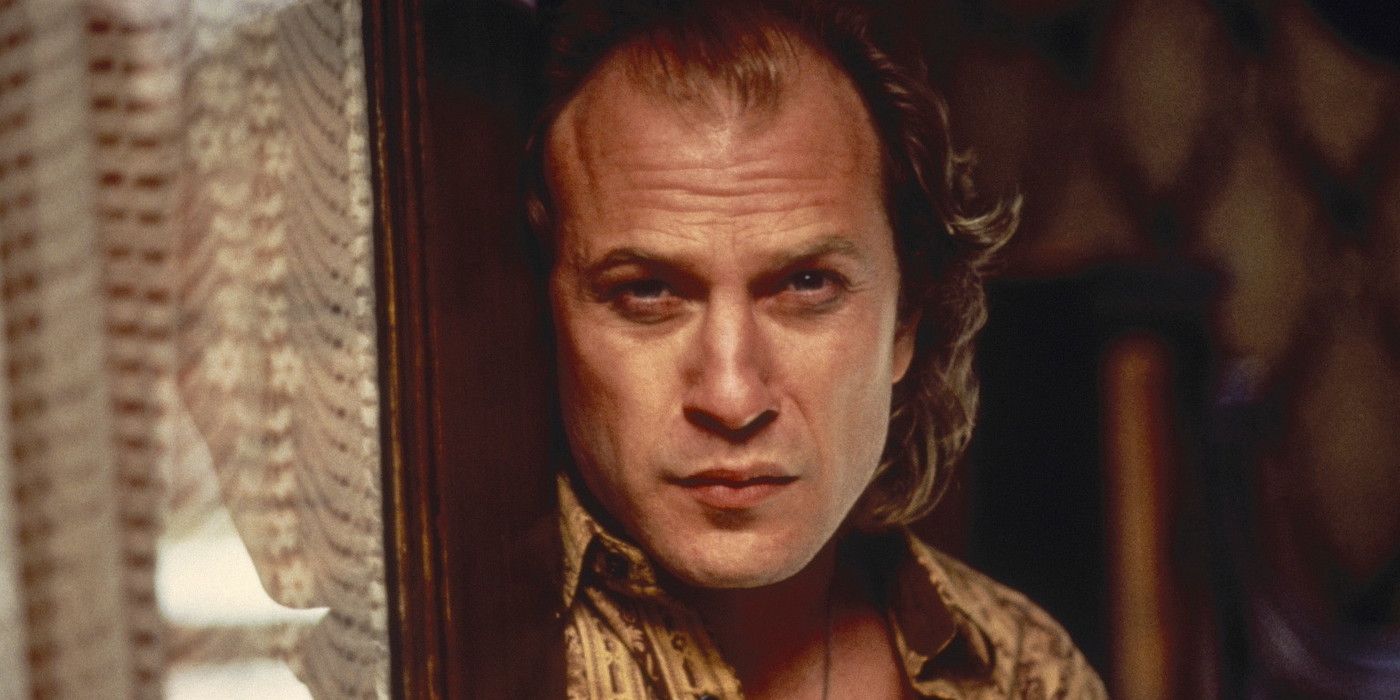In contemporary crime screen stories, we are obsessed with the psychological justifications of the criminal's heinous actions beyond a quaint desire for "motive." This search for meaning and purpose powers these programs' narrative engines in works varying from prestigious (Mindhunter) to populist (Criminal Minds) to somewhere in between (The Sinner). Why, why, why — we need to know this almost more than our needs to know the more traditional journalistic questions powering a mystery. Who's and what's and where's are antiquated; the real acclaimed stuff comes with that meaty why.
The Silence of the Lambs could be seen as an essentially influential text in this genre trend. It tells us in one of its very first scenes via FBI Behavioral Sciences head Jack Crawford (Scott Glenn) that they're interested in interviewing serial killers to write psychological profiles and breakdowns, a task that literalizes this "why" impulse; heck, the sub-agency is called "Behavioral Sciences"! But as the pitch-perfect film (now in a pitch-perfect 4K blu-ray transfer from Kino Lorber) moves on, The Silence of the Lambs revels in a certain unknowability behind the monsters who commit these terrible crimes. It's interested in answering "why," just not about the subject you may think you want.
Clarice Starling (Jodie Foster) is an FBI trainee used by Crawford as a gambit to get imprisoned, cannibalistic serial killer Dr. Hannibal Lecter (Anthony Hopkins) to open up with any intelligence on the identity of "Buffalo Bill" (Ted Levine), a serial killer whose M.O. involves kidnapping and skinning young women. From the jump, Starling is told with blunt clarity by Crawford and Dr. Frederick Chilton (Anthony Heald) that Lecter is a "monster" of the purest form. Crawford doesn't really expect any level of humane insight to be gained beyond this broad label, but that doesn't stop many of the film's key players (and its audience) from trying. Starling does this out of the professional expectations of her task coupled with the investigator's inherent curiosity. Chilton, an egotistical boor from frame one, does this to be the sole inhabitant of this kind of knowledge; he believes he is the protagonist in his own prestigious "whydunit," the genius, eccentric detective who sees what we cannot.
Lecter sees this all for what it is — insulting. So he plays with Starling, illustrating the futility to her (and to us) of "figuring him out." Instead, he turns the microscope onto Starling herself, giving the film's main character a satisfying amount of room to breathe, explain, and change. Oftentimes in these kinds of psychological crime thrillers, our main detective purposefully does not change, with the interior journey of the criminal satisfying the audience's need to see a narrative closed loop. Here, writer Ted Tally, deservedly winning the Oscar for this screenplay, is smarter than us. He keeps Lecter, the guy whom we were promised we would psychologically interrogate, purposefully at arm's length, instead rendering Starling with the levels of shading and justification and nuance that make us need to follow her toward the ends of the moral earth.
Starling's perspective on Lecter follows this path, too. At the beginning of the film, she is keen on dissecting Lecter. By its horrific end of act two, when someone asks her bluntly if he's a vampire, she responds that "they don’t have a word for what he is." Starling now sees that this man — or as Senator Martin (Diane Baker) calls him, "this thing" — exists beyond any basic humanity, only using his clinical analyses of human nature to further his grim, pleasurable druthers (of killing and eating people). It makes Hannibal Lecter a stupendously terrifying, accessible-by-being-inaccessible movie character, one that deserves his iconic pop culture status and then some. But on a deeper level, it makes Clarice Starling a superior character; beyond her own relentless activation in the narrative, Lecter's constant swiveling of the spotlight ensures we get to know her why's on an enriching level, avoiding tempting distraction or empty, grimdark posturing.
As for the why's of Buffalo Bill, the real reason Starling talks with Lecter — the good doctor does offer psychological examinations of the skinning madman. These theories range in efficacy and even interest; at one point, Lecter dully, cynically prattles off a series of criminal psychology buzzwords quickly categorizing him into an understandable box (on this watch, I cackled at Lecter's emotionless delivery of big ideas like "systemic abuse," ideas which are given oppressive weight in prestige crime limited series today). The more explicit theories also err the film into the problematic about its relationship with transgender identities; while both Lecter and Starling are quick to state that Buffalo Bill is not trans and that trans criminals do not behave in this way, the pathological generalizations are still bandied about, still on the tips of their brains enough to reckon with in somewhat troubling ways. When Silence dips its toe into objective criminal profiling — ostensibly the point of Crawford's first-scene mission — it does so either with a deadpan sense of nihilistic humor or a heavy-footed misread. It's a better object when it's, well, silent; evidenced by its ferociously gripping third act, where the survivalist aspects of the film come to the forefront, and instinct trumps any sense of psychoanalytical meandering.
Lecter tells Starling, and us, time and time again that he won't be the FBI's experiment, no matter how much Chilton wants him to be. When asked about the psychological inclinations of criminals, he finds the questions "tedious, very tedious." When a census-taker comes to put him in a box, Lecter eats his damn liver. So much of the film is begging for these monsters to tell us the humanity behind their decisions, from Starling taunting Lecter to use that "high-powered perception" against himself to Senator Martin constantly using her daughter's name when speaking on camera to Buffalo Bill. Instead, Lecter strikes a "quid pro quo" deal with Starling, asking for her psychological clues in exchange for this pesky, rote, uninteresting information. These insights into Starling provide the film with its arc, heart, and gestures toward a potentially unknowable catharsis; the ending isn't powerful because Lecter purs that he's about to eat Chilton's damn liver, but because we know how and why Starling feels the way she does. The Silence of the Lambs is not a reductive film but a simple one; one that dares to show us a monster without backstory or explanation, one that suggests we find our illuminatory humanity within ourselves.
The Silence of the Lambs is now available on 4K blu-ray from Kino Lorber.



